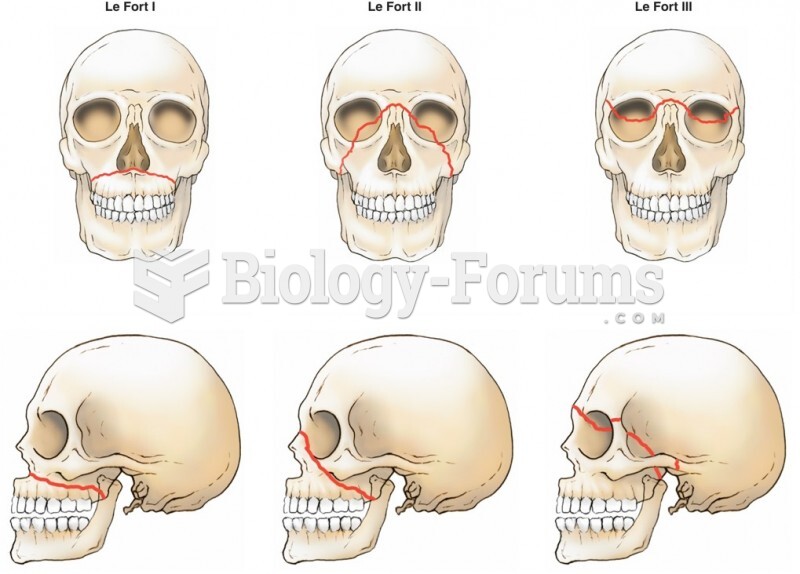|
|
|
Approximately 25% of all reported medication errors result from some kind of name confusion.
According to the National Institute of Environmental Health Sciences, lung disease is the third leading killer in the United States, responsible for one in seven deaths. It is the leading cause of death among infants under the age of one year.
In most cases, kidneys can recover from almost complete loss of function, such as in acute kidney (renal) failure.
Elderly adults are at greatest risk of stroke and myocardial infarction and have the most to gain from prophylaxis. Patients ages 60 to 80 years with blood pressures above 160/90 mm Hg should benefit from antihypertensive treatment.
Most childhood vaccines are 90–99% effective in preventing disease. Side effects are rarely serious.







